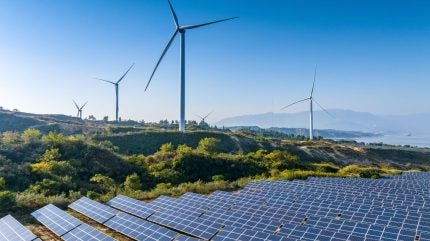
Romania has delivered its second successful renewable energy auction under the contracts for difference (CfD) scheme, with backing from the European Bank for Reconstruction and Development (EBRD).
The CfD scheme incentivises investments by providing long-term revenue stability to developers, strengthening the market integration of renewables.

Discover B2B Marketing That Performs
Combine business intelligence and editorial excellence to reach engaged professionals across 36 leading media platforms.
Under the second auction, Romania awarded 2,751MW of CfD-backed capacity, bringing the combined total from Romania’s first and second auctions to 4.2GW.
It surpassed the national target of 3.5GW set under Romania’s Recovery and Resilience Plan.
The auction saw bids for more than 5,500 MW of solar and wind project capacity, with solar photovoltaic bids reaching competitive prices as low as €35 per megawatt hour.
The financing for Romania’s CfD mechanism is supported by the European Union Modernisation Fund.

US Tariffs are shifting - will you react or anticipate?
Don’t let policy changes catch you off guard. Stay proactive with real-time data and expert analysis.
By GlobalDataThe EBRD collaborated closely with the Romanian Ministry of Energy to develop the CfD scheme and auction framework, providing technical assistance, policy design and implementation support.
In 2024, the EBRD, in addition to its own renewable energy investments, successfully supported the first CfD auction for 1.5GW of solar and wind capacity.
It also signed a memorandum of understanding with the Minister of Energy to support the second CfD auction in 2025 and reforms to integrate storage into energy markets.
EBRD director of Romania Victoria Zinchuk stated: “We are proud of the strong partnership we have fostered in this sector and congratulate our Romanian colleagues on the successful second auction.
“This highlights the Ministry of Energy’s commitment to competitive auctions and well-structured support mechanisms, and it sets the stage for further progress, including the development of storage support schemes.”
The CfD mechanism advances Romania towards its ambitious long-term decarbonisation targets.
Investment in renewable energy is essential for meeting the climate commitments outlined in the country’s National Energy and Climate Plan, which sets a target of 38.3% of renewable energy in gross final energy consumption by 2030.
Romania’s energy strategy aims for 44% of gross final energy consumption from low-carbon sources by 2035.





